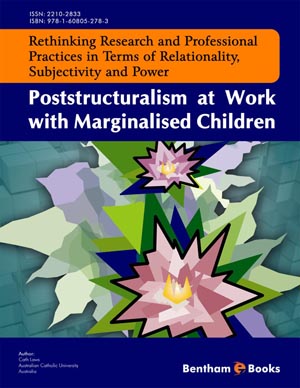Abstract
As detailed in Chapter 1, Researching special schools: a poststructuralist approach, this work explores the capacity to apply poststructuralism, in theory and in practice, in a setting where other discourses are dominant. I focus on my own work as principal in the context of a special education school where I worked with students categorised as ‘emotionally/behaviourally disordered’. I analyse the discourses that inform this kind of work, both from the position of one who inevitably took them up, even becoming expert in them, and from a Foucauldian position of critique which sets out to render these discourses less able to be taken up.
By working in a poststructuralist framework, this chapter explores how there might be moments when students and staff at the special school are able to recognise students and themselves as already subjected and as having the kind of power that comes from that subjection. I examine the ways agency derives both from reading discursive practices ‘correctly’ and against the grain. These strategies contain the possibilities of resistance and of taking up positions other than those made inevitable within dominant discourses. The possibilities are explored in the context of students’ everyday lives, at the special school, playing sport and away on camps. Finally, I discuss both the binds and the possibilities of agency.
Keywords: education, disability, emotional and behavioural disorders, poverty, agency, power, Foucault, poststructuralist research, deconstruction.













